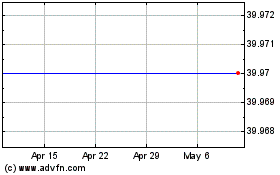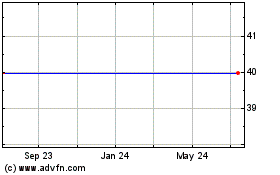Schwab Capital In Focus As Money Market Fund Reform Looms
February 08 2012 - 4:23PM
Dow Jones News
Looming money market fund regulations have analysts talking
about Chuck's capital.
Charles Schwab Corp. (SCHW), which manages roughly $160 billion
in money market fund assets, is among those companies affected by a
Securities and Exchange Commission proposal to stabilize the $2.7
trillion money market fund industry.
While the discount brokerage has said it's prepared for tighter
rules on capital and liquidity for those investments, some Wall
Street analysts have started an early debate on whether or not
Schwab would need to raise even a modest amount of capital to
satisfy reserve requirements.
Under the expected new regulations -- which have yet to be set
in stone -- firms like Schwab would have to set aside reserves to
cover money market fund assets, though the so-called capital buffer
level hasn't been determined.
The rules would also apply to other financial institutions --
some with bigger percentages of money market funds, such as
Federated Investors Inc. (FII) -- as well as several banks. But the
debate over capital has so far centered on Schwab in a few research
notes this week.
So far, analysts have suggested companies could be asked to hold
a 1% reserve, which for Schwab could mean between $870 million and
$900 million in capital. Beyond that, opinions on Schwab's
prospects diverge.
Sandler O'Neill + Partners analyst Richard Repetto projected
that while Schwab would have $650 million in excess capital this
year after accounting for its expected net income and other capital
needs, he believes the company would still need to raise $219
million to support its money market funds.
However, Repetto acknowledged that a phase-in period between
adoption of the plan and its effective date could "reduce the
deficit."
In contrast, JMP Securities analyst David Trone said Wednesday
that "between current excess cash and future retained earnings,
Schwab can avoid such a raise."
For its part, Schwab said the net impact of the proposed reform,
even under extreme scenarios, is manageable. Last week, Chief
Executive Walt Bettinger told investors "if the capital
requirements recently talked about are put in place, the capital
for us would be very, very modest, if we chose to go that way, or,
again, as an alternative we might simply convert the fund."
Such a conversion would mean Schwab would move clients' money
market fund balances into alternative products, such as Treasury
funds, which many expect to be exempt from the new rules.
Bettinger, touting the possible measure, said "even under some
of the more ... aggressive or draconian measures, there would be
carve-outs for [investments] like Treasurys, or agency paper, maybe
munis, you know, paper that is very short-term, seven days and
under."
While that move may satisfy Schwab clients, it also could reduce
the management fees the company would stand to collect in the
future, albeit without the capital charge.
Schwab could also elect to sweep client cash to its bank, in a
move similar to that of TD Ameritrade Holding Corp. (AMTD).
Ameritrade though, has moved client balances out of money market
funds and into insured deposit accounts at Toronto-Dominion Bank
(TD), its largest shareholder. The move, which requires no capital
from Ameritrade, has lowered its money market fund assets to $5.1
billion as of last December, from $28.3 billion in December
2008.
Barclays Capital analyst Eric Bertrand said that sweeping client
cash to the bank has both benefits as well as costs for Schwab,
noting that while it would reduce the company's need to waive fees
on its money market funds and potentially increase net interest
income by investing that client cash in a higher-yielding
investment securities portfolio, the bank itself would then require
more capital.
With low interest rates, Schwab has been waiving fees on its
money market funds for more than three years so that client yields
don't turn negative.
Commenting on growth in Schwab's bank, Bertrand said the company
"has had the enviable burden of having grown [the bank] so quickly
as to need to raise external capital to support it."
Last month, Schwab sold $400 million in preferred stock, in part
to provide an "extra buffer" to accommodate "outsized" balance
sheet growth or a longer period of stress.
Shares of Charles Schwab recently traded up 1.6% at $12.48. The
stock has climbed 11% in the year to date.
-By Brett Philbin, Dow Jones Newswires; 212-416-2173;
brett.philbin@dowjones.com
TD Ameritrade (NASDAQ:AMTD)
Historical Stock Chart
From Mar 2024 to Apr 2024

TD Ameritrade (NASDAQ:AMTD)
Historical Stock Chart
From Apr 2023 to Apr 2024
